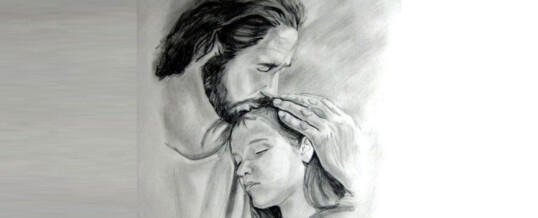
“Here is the God I want to believe in: a Father who, from the beginning of creation, has stretched out his arms in merciful blessing, never forcing himself on anyone, but always waiting; never letting his arms drop down in despair, but always hoping his children will return so that he can speak of words of love to them and let his tired arms rest on their shoulders. His only desire is to bless.” (Henri Nouwen, 1992)
I wonder how many baptized Christians disconnect from their faith because they feel unworthy, marginalized, or at odds with either the institutional church or even their local parish community. My experience talking with people about faith and religion suggests there may be many, which saddens me because we are told there is room for all of us, in particular those who are broken, struggling, and for whatever reason have lost a sense of their original goodness. Pope Francis said it best, quoted here from an interview with the Jesuit publication, America Magazine:
“The thing the church needs most today is the ability to heal wounds and to warm the hearts of the faithful; it needs nearness, proximity. I see the church as a field hospital after battle. It is useless to ask a seriously injured person if he has high cholesterol and about the level of his blood sugars! You have to heal his wounds. Then we can talk about everything else. Heal the wounds, heal the wounds. … And you have to start from the ground up.” (America Magazine, 2013)
Jesus’ parable of The Prodigal Son (or The Forgiving Father, or The Two Sons, depending on the lens used to read it) is relatable to many of us. Looking back over my lifelong faith journey I recognize times when I have been that Prodigal son, but there have also been times when I have been the resentful brother and there is much to learn about myself and God by entertaining these different perspectives. In fact, Fr. Henri Nouwen in his book The Return of the Prodigal Son, suggests that after we’ve experienced the joy of homecoming, and worked through our resentment like the brother, our work is to “claim fatherhood,” or become like the father. I am not suggesting it is possible for us to become God, but there is a call for Christians to embody the forgiveness, benevolence, and acceptance expressed by the father. This parable is brief, but filled with challenges that for me at least, require hard personal work.
If I tried to see through the eyes of someone disconnected from their faith (for whatever reason), I would find this celebratory homecoming scenario an appealing one. To be embraced and celebrated upon return sounds more Christ-like than “Who does he think he is?” or “Why are you even here?”
I suspect there is a part of all of us wanting to believe we are special, remarkable, and unique but in my experience on planet earth we often derive our self-worth based on socio-economic status, the size/location of our homes, our level of education, occupation, who we know, or our political influence, except our ways are not God’s ways. People care deeply about these matters, but as difficult as it may be to believe, everyone is equally remarkable in God’s eyes. We are all God’s favourites. You are God’s favourite and that annoying person sitting behind you in the pew is also God’s favourite. This can be a tough pill to swallow, like it was for the older brother in the parable.
Spiritual writer Rachel Held Evans (1981-2019) wrote about God’s kingdom in a way that makes me want to take part: “This is what God’s kingdom is like: a bunch of outcasts and oddballs gathered at a table, not because they are rich or worthy or good, but because they are hungry, because they said yes. And there’s always room for more.”
This is the God I want to believe in, and the kingdom I want to help build.
Trevor Droesbeck
Archdiocese of Moncton, Office of Evangelization and Catechesis
SEP
2022

About the Author: